FAIRFIELD — Alex White got tired of winning chili cook-offs with his unique Buffalo chicken recipe.
As a cook, he wanted something a little more challenging.
After graduating from Madison High School in 2014, White, of Athens, enrolled for two years in the culinary arts program at the Somerset Career and Technical Center at Skowhegan Area High School, while getting his grades up in the district’s adult education program.
Then in 2016, he entered the new farm-to-table culinary arts program at Kennebec Valley Community College on the former campus of Good Will-Hinckley. The two-year curriculum offers basic and advanced food preparation techniques, nutrition, menu planning, kitchen sanitation and safety, food purchasing and storage and meal serving.
Graduates of the culinary arts program will have an in-depth knowledge of sustainable food systems, including where the food comes from, the advantages of buying locally, various farming and production methods and the value of sustainable and ethical ingredients, according to the KVCC website.
The culinary arts program goes hand in hand with the school’s sustainable agriculture program, which offers an associate degree, a livestock management certificate and a vegetable production certificate. The latter program provides students with both the technical and small-business skills needed to manage or develop a small farm or agricultural business.
The two-year curriculum includes classes in soil, plant and animal science, crop production, integrated pest management, farm infrastructure and sustainable livestock management. Business courses include agricultural marketing, accounting and small business. Graduates are awarded an associate degree in applied science.
“I want to be a chef or a cook in a restaurant when I graduate in May,” White said. “I am currently working at Eric’s in Waterville. He has really good food.”
Students using meat, eggs and produce raised at the KVCC farm prepare meals and serve the public each week when classes are in session from menus with themes from their International Bistro menu, ranging from German, French and Mexican meals to California and Japanese cuisine.
Meals are served by second-year students through the end of April from 1:30 to 4 p.m. every Thursday. Take-out orders can be placed by calling 453-3683.
Next semester there will be four public fine-dining dates on a schedule that has yet to be decided.
Students make their own bread and their own salad dressing, along with all the other dishes in a large commercial kitchen completed in 2014 in the Averill Building on the Harold Alfond Campus of the community college.
“The vegetables come locally from the farm,” said White, 22. “We get green beans, we get carrots, we get potatoes, onions, garlic, spinach, squash, our lettuce and all of our greens from there.”
The farm at KVCC grows 3 acres of MOFGA-certified organic vegetables, fruits, herbs and flowers on 120 acres of prime agricultural land in the heart of the campus off U.S. Route 201 in the Hinckley section of Fairfield.
Stephanie Enjaian, head chef and chairman of the Culinary Arts Department, said she grew up in Oklahoma but came to Maine in part because of the “foodie” reputation and culinary scene in the city of Portland and the burgeoning farm-to-table movement in central Maine.
“Everything that we can grow, we do,” said Enjaian, 28, now living in Waterville. “We also grow in my office some lettuce, herbs and edible flowers in an aeroponic system.
“About the butchering, we take our lamb to a USDA inspected plant to be slaughtered and receive the lambs whole to our kitchen. We then fabricate — meaning break down into parts — both the chickens and lamb into usable parts.”
Enjaian said the kitchen of the culinary arts program is a full industrial-scale kitchen finished in 2014 when the program started. She arrived in 2017. There is also a demonstration kitchen, with an induction stove using magnetic pans, where classes are held across the hall. The community classes include one on Maine grains at the Somerset Grist Mill in Skowhegan.
In the spring, students serve international bistro meals to the public and in the fall they do their public “fine dining” events, which is four nights of six-to-seven-course meals for $20 per person.
“Most of it’s local, so we either grow it or I get it locally,” Enjaian said.
Currently 18 first-year students and eight second-year students, including White, are in the culinary arts program.
Good Will-Hinckley, originally a school and home for boys, was started in 1889 by George Walter Hinckley and had a 125-year run as a residential facility for at-risk and homeless youths.
The school closed in 2009, in part because of a lack of private donations during the Great Recession. During that time, the organization worked to secure funding.
Battling back, the organization sold a large portion of its campus to Kennebec Valley Community College, and in 2011 it reopened as the Maine Academy of Natural Sciences, the state’s first charter high school. The campus also is home to the L.C. Bates Museum; and students in kindergarten through grade 12 who experience social, emotional and behavioral problems can attend the Glenn Stratton Learning Center day treatment program.
The Maine Academy of Natural Sciences introduces students to careers in farming, forestry, sustainability, alternative energy and other related fields. Students gain knowledge and skills through hands-on projects, internships, targeted courses, and real-world experiences such as growing food on campus for the cafeteria and residence, according to the Good Will-Hinckley website.
KVCC also acquired the former Good Will-Hinckley farm about the same time. The farm originally was owned by the Chase family — grandparents of Maine’s former U.S. Sen. Margaret Chase Smith.
The farm includes a classroom, renovated barn spaces, greenhouses and other infrastructure. With the help of student interns and employees, the farm feeds the college community while educating through hands-on learning.
Growing a wide range of crops is important both for the education of the students and for promoting a biodiverse growing landscape, according to the website. The crops grown on the farm by students are marketed through a KVCC community-supported agriculture program as well as to the culinary arts program and cafe.
All of the livestock is raised sustainably on pasture and rotated for both the health of the animals and the land. The farm currently focuses on raising Katahdin sheep for meat and soon, White said, it will be raising pigs for meat.
The culinary arts program maintains an Instagram account called kvccculinary, where all the menus can be found.
Doug Harlow — 612-2367
Twitter:@Doug_Harlow
Send questions/comments to the editors.


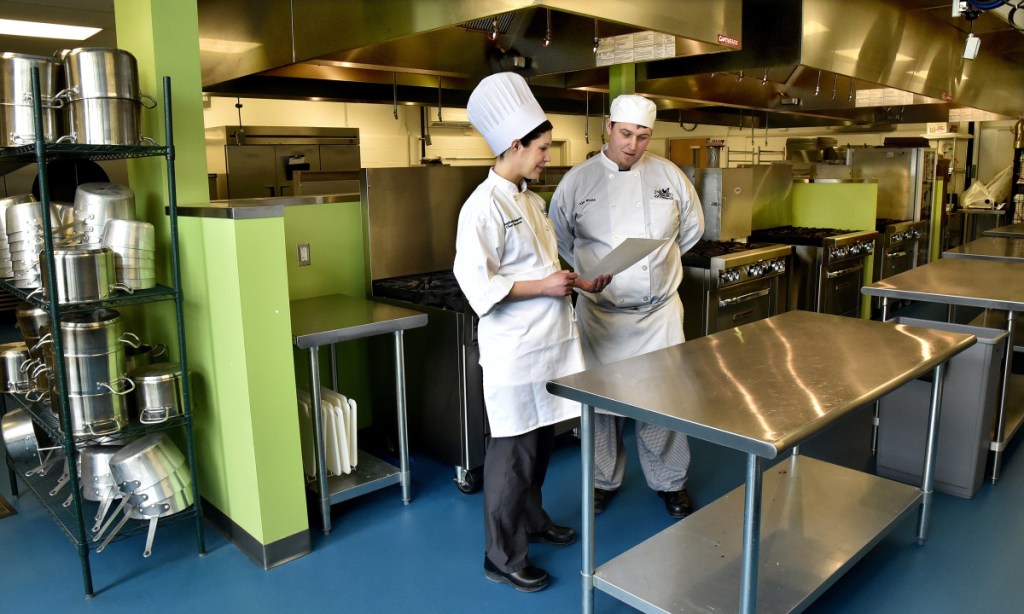
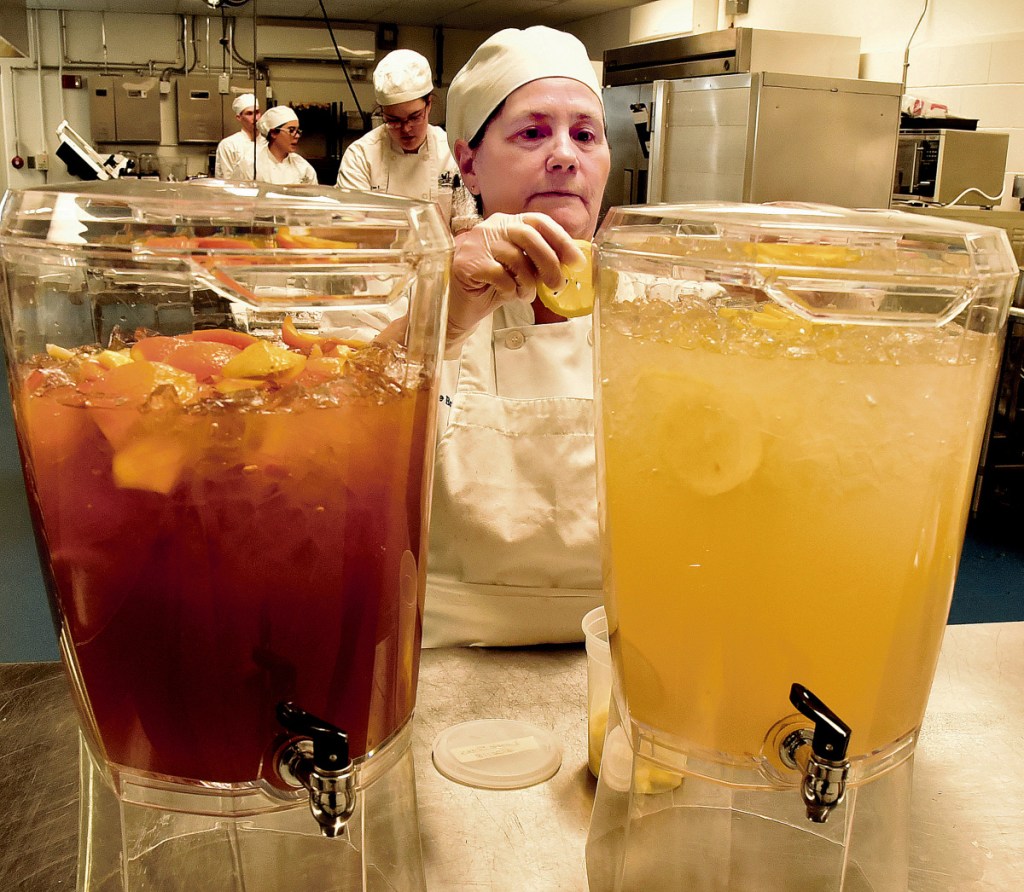
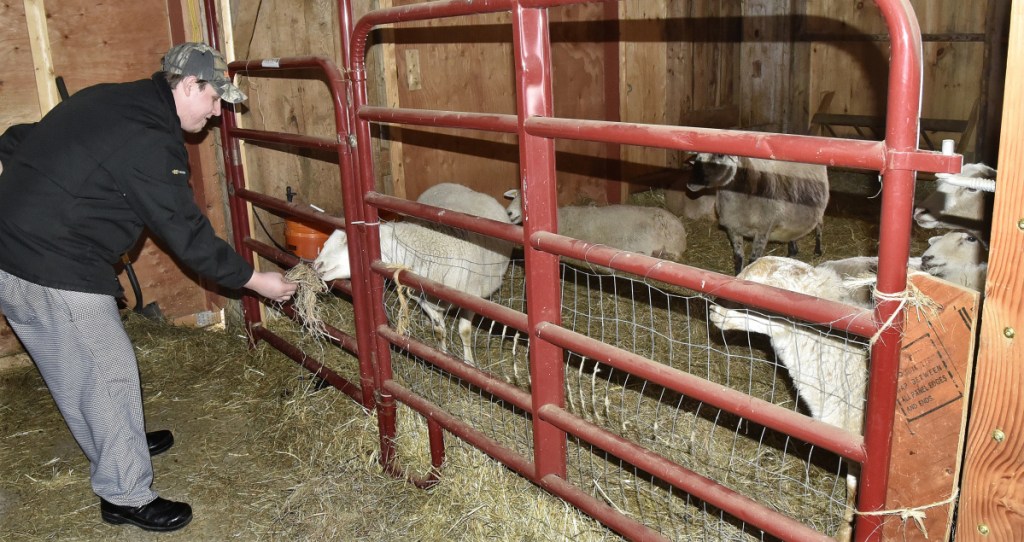
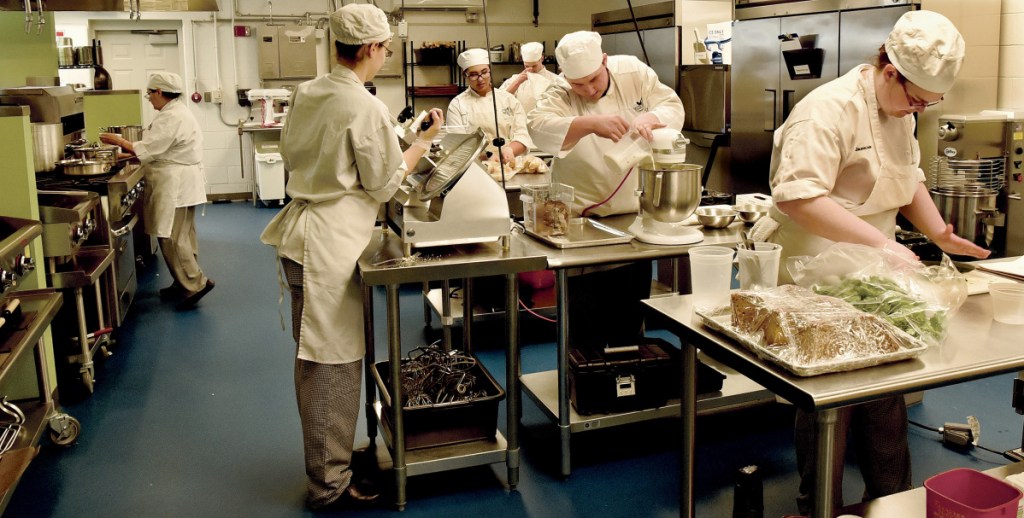
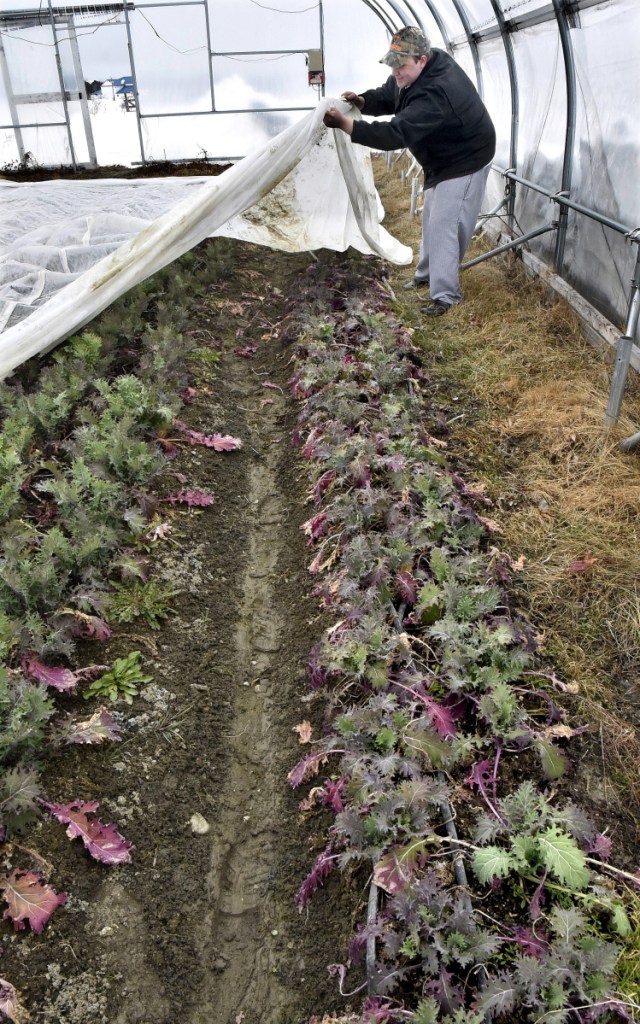
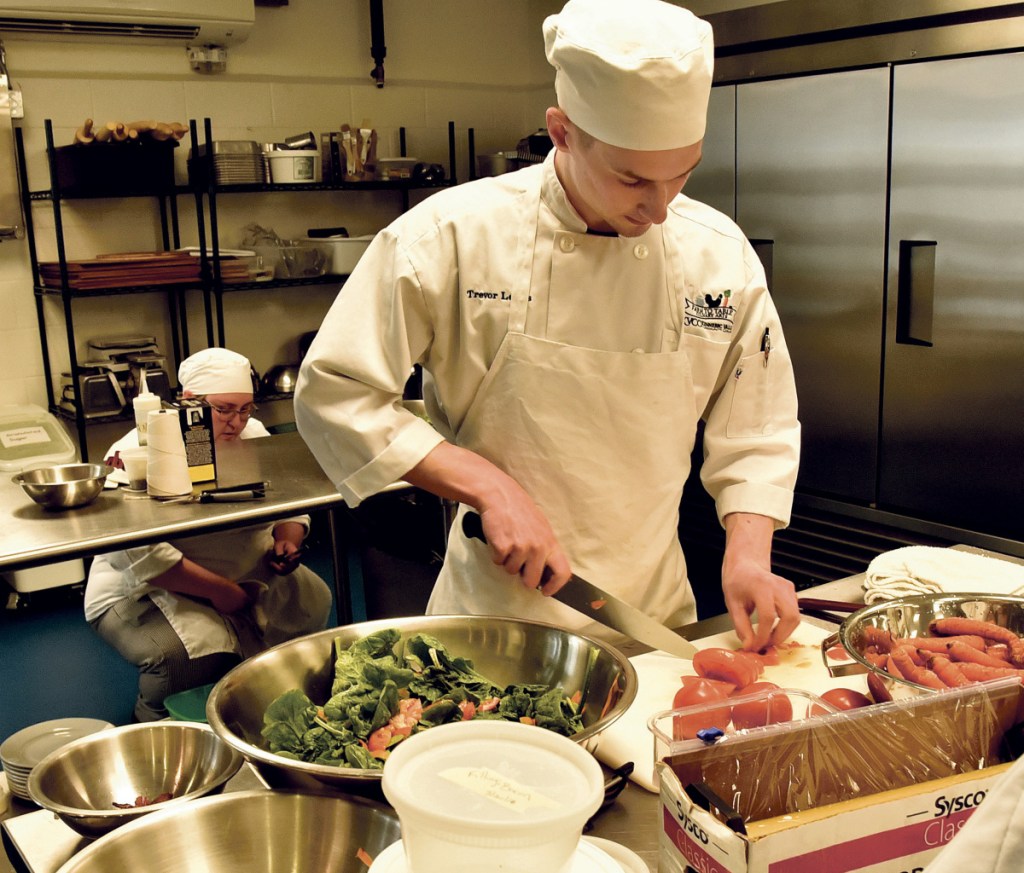
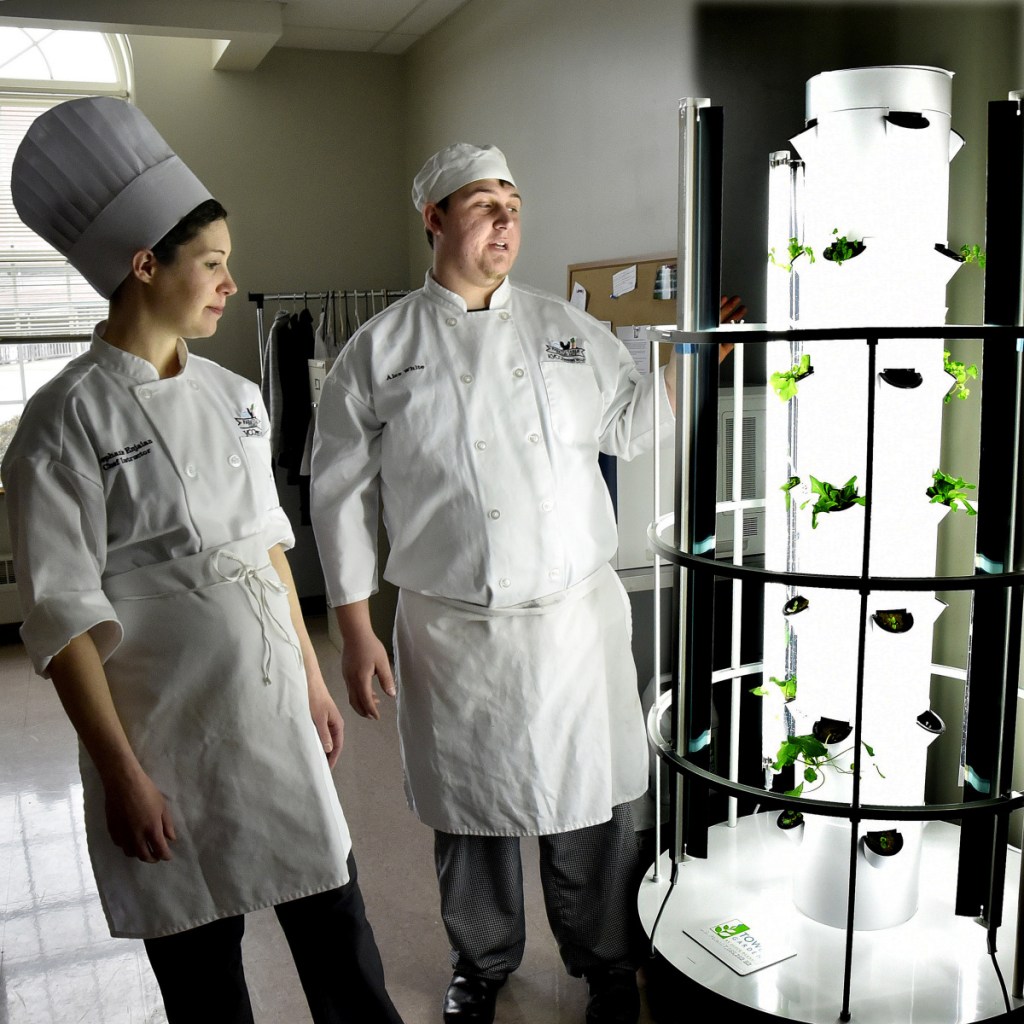
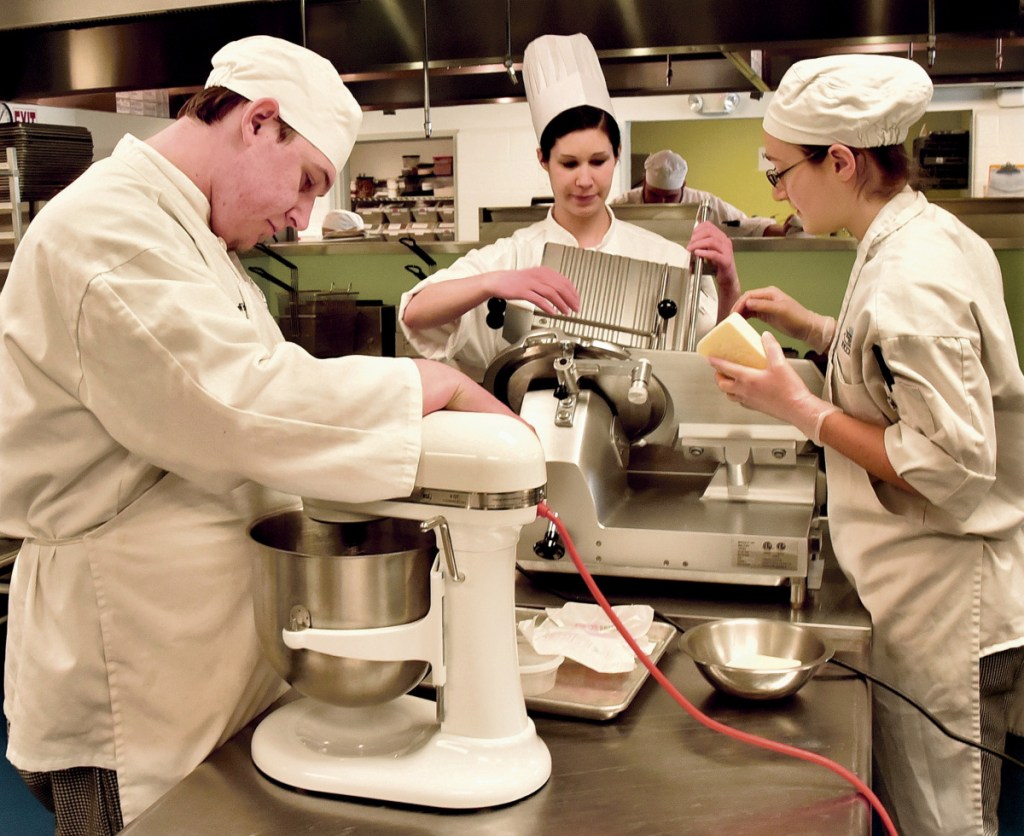
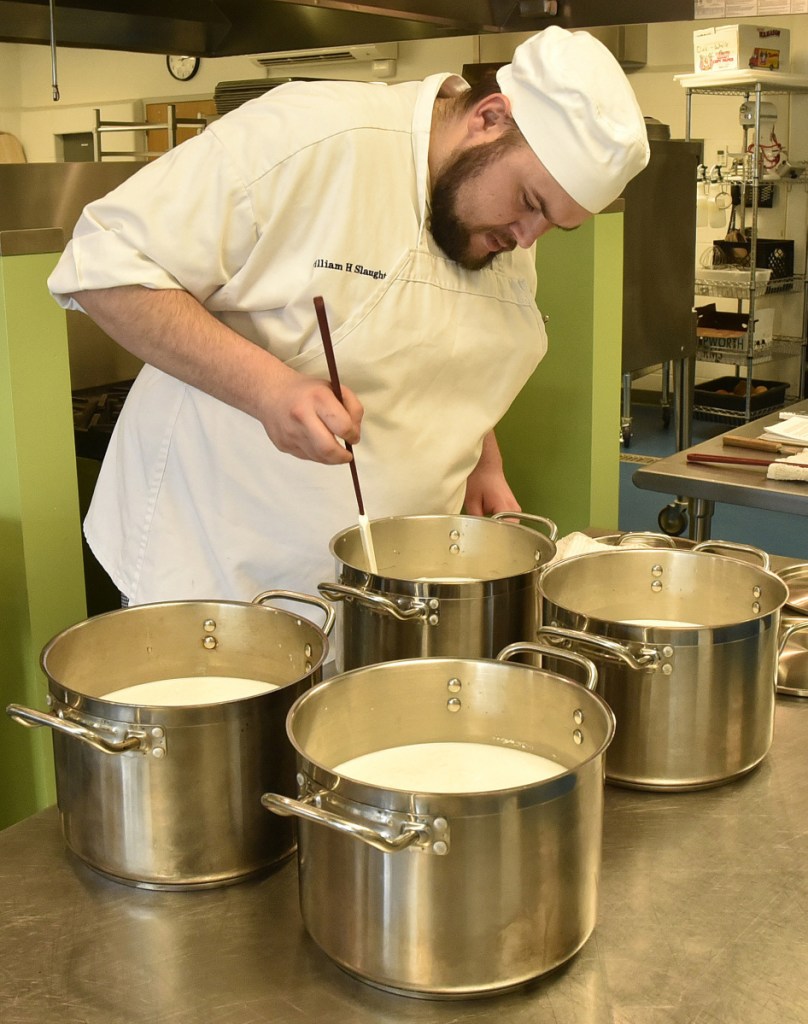
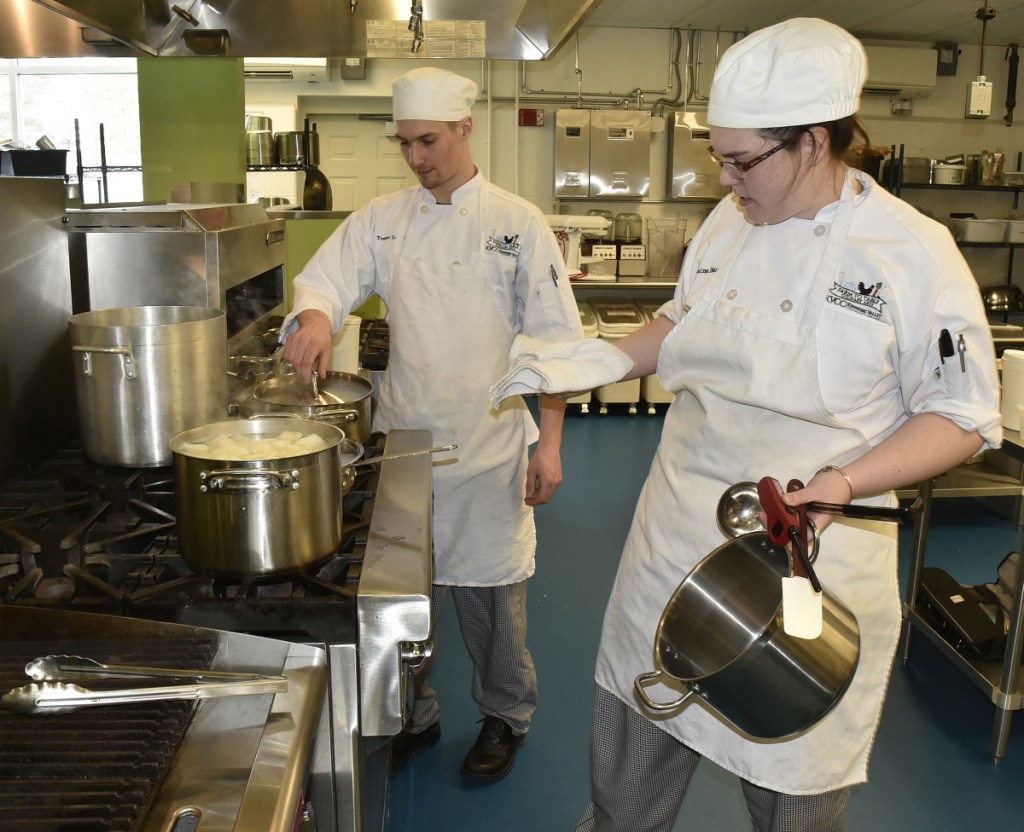

Comments are no longer available on this story